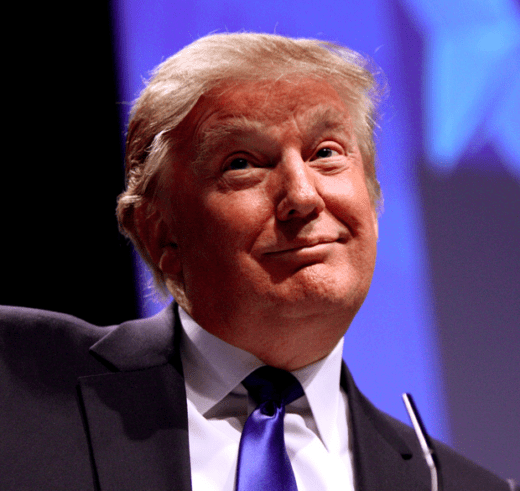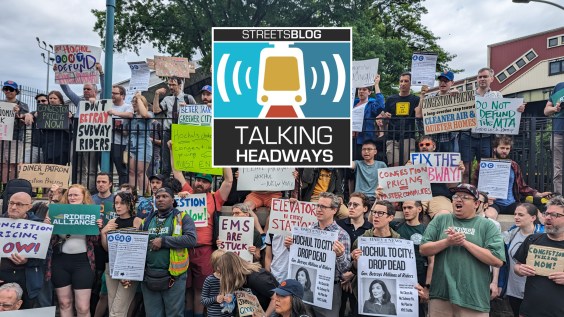The Trump administration's fiscal year 2018 budget, released yesterday, includes severe cuts to federal transit funding. Next stop: Congress, which will consider the president's proposal before it passes a budget over the summer.
As with the White House budget blueprint released in March, the only cabinet-level departments that would get funding increases are Defense and Veterans Affairs. Every other agency gets cuts, including U.S. DOT, which would see next year's budget drop by $2.4 billion, or 12.7 percent [PDF].
The White House wants to dramatically shrink the Highway Trust Fund, which pays for roads but also transit and bicycling and walking projects. Congress has recently come up with patches and gimmicks to replenish the fund instead of raising the gas tax, which for decades was the primary source of revenue. Trump wants to rely only on gas tax revenue, cutting an estimated $95 billion from the fund over 20 years.
Transit, bicycling, and walking will face the biggest threat. Transit agencies serving cities around the nation rely on federal funds for their capital budgets. If those funds can't be counted on, it will threaten their core infrastructure and existing service.
Capital grants for transit expansion projects, known as New Starts, would also be hit especially hard, with a cut of $928 million, or 43 percent, compared to what Congress has allocated for the current fiscal year. The Trump administration says it will support projects that have already signed funding agreements with the federal government, but wants to eventually eliminate New Starts completely.
That would force cities and states to raise additional funds or cancel their projects entirely, and the pipeline for future expansion projects would also dry up.
Perversely, the Trump administration says it is cutting federal support for transit because cities like Denver, Los Angeles, and Seattle have raised funds locally, often through ballot initiatives that increase taxes, to expand transit. While the Trump administration says this shows that federal support is not needed, those projects in fact rely on matching federal funds.
Trump's budget also eliminates the TIGER program, which received $499 million this fiscal year and has funded a range of freight, transit, bicycle, and pedestrian projects around the nation. It also cuts $630 million in aid for long-distance Amtrak routes.
Amid this looming austerity, Trump wants to insert his infrastructure plan [PDF], which would cover not just transportation but also drinking water, electricity, and other projects. It's billed as a $1 trillion plan but only $200 billion of that is federal spending. (There's also just $5 billion allocated for the plan in the coming year -- not nearly enough, Democrats say, to make up for Trump's cuts.)
The other $800 billion would come in the form of private finance, which is suited for building toll roads (if they're profitable) but not transit infrastructure. Wall Street may benefit from a bonanza of infrastructure financing, but America won't be building the transit lines and safe streets it needs under this plan.
Congress must now come up with a final budget plan to go to the president's desk before the fiscal year starts on October 1.






